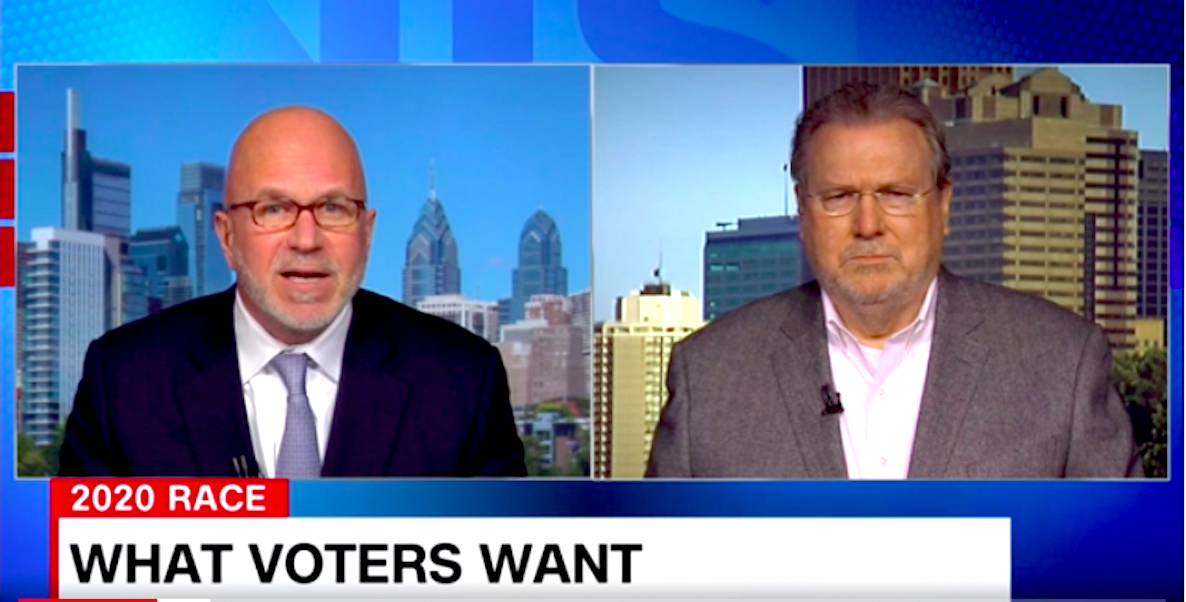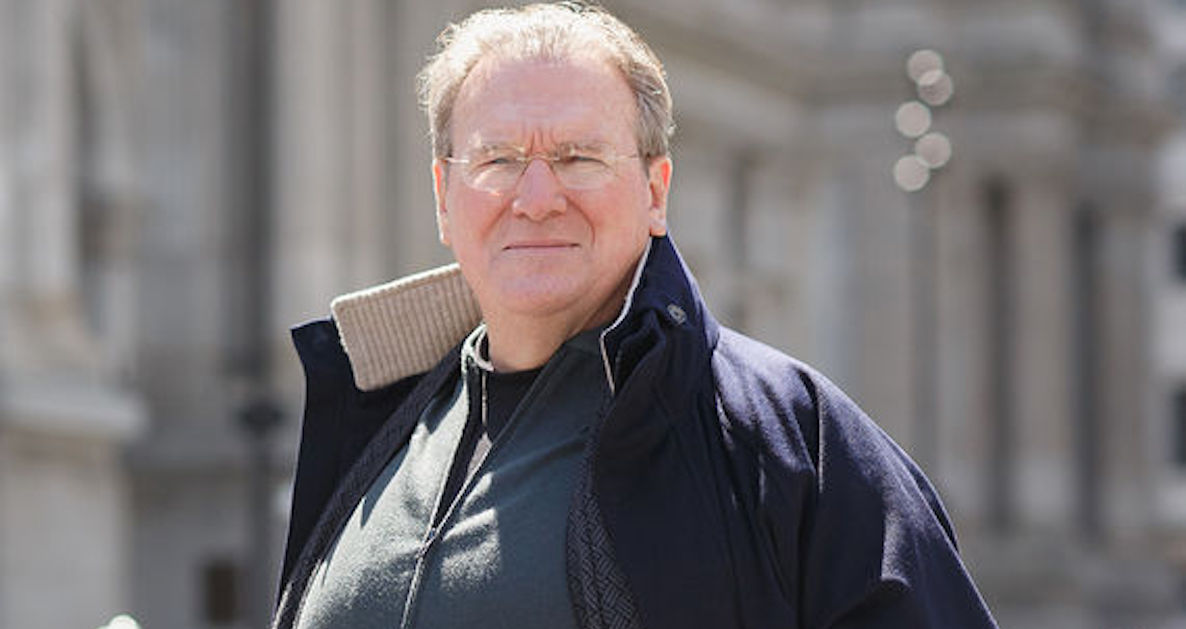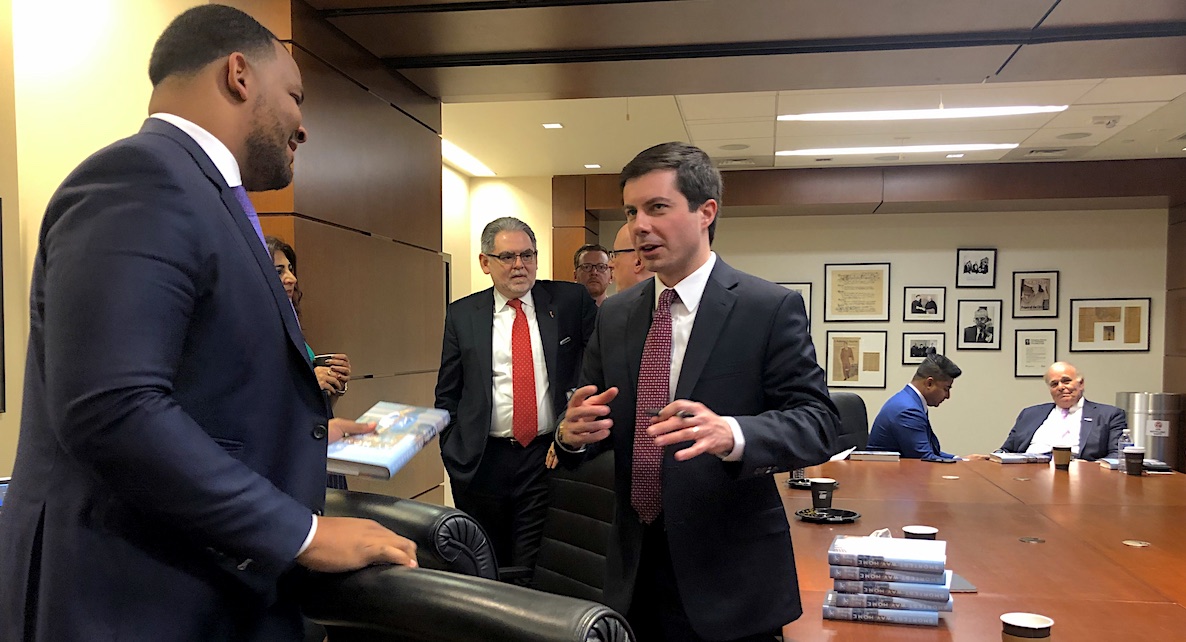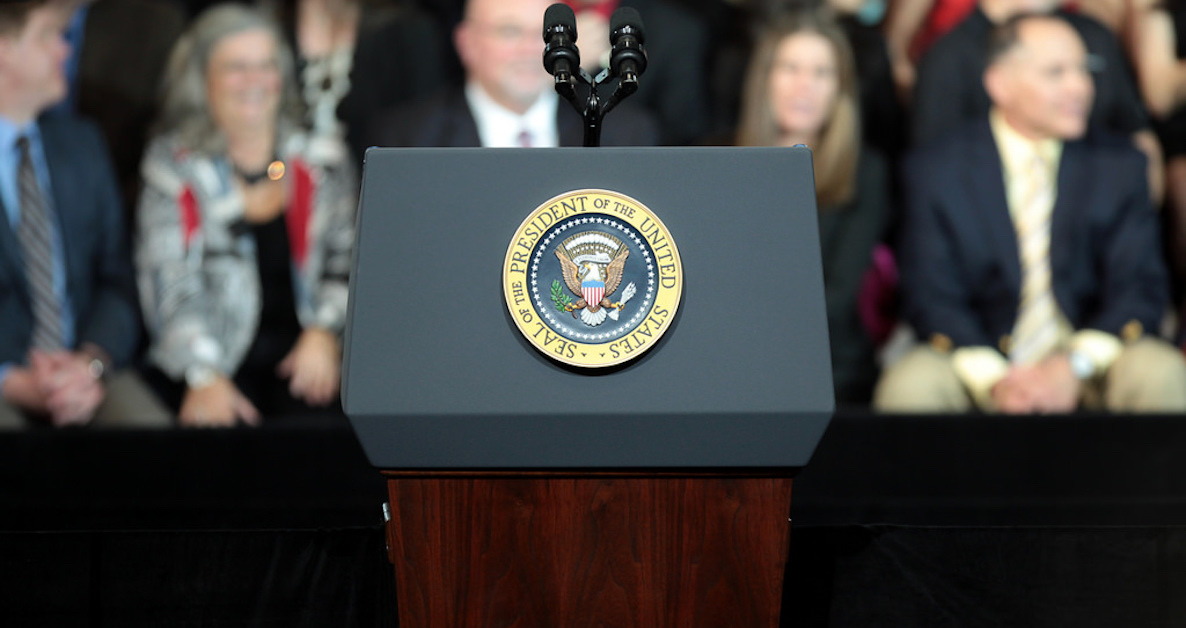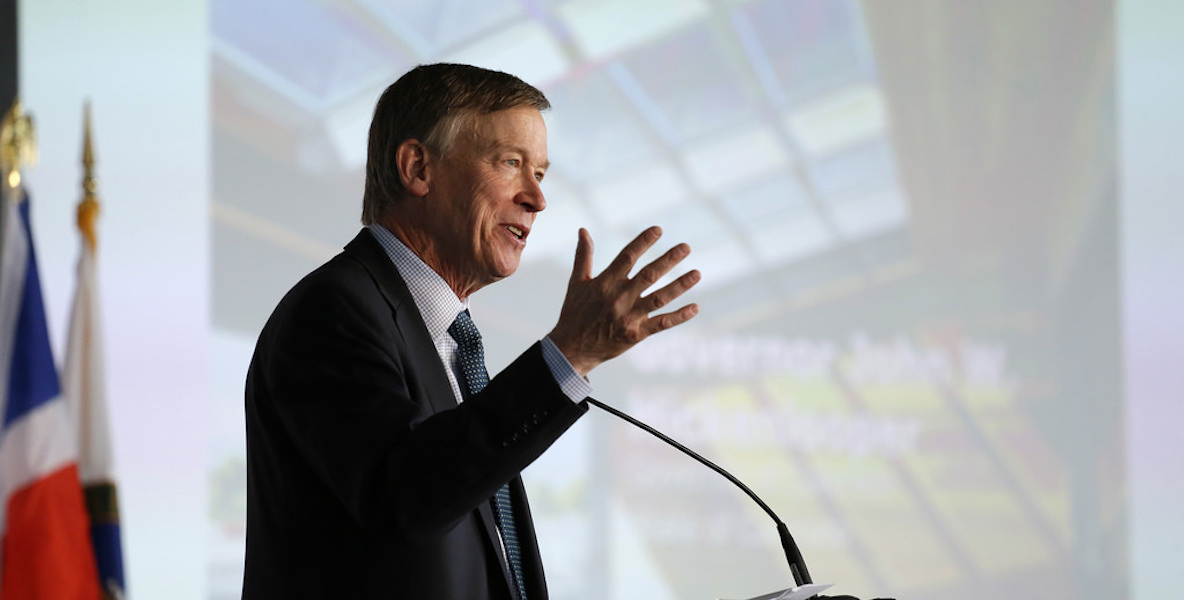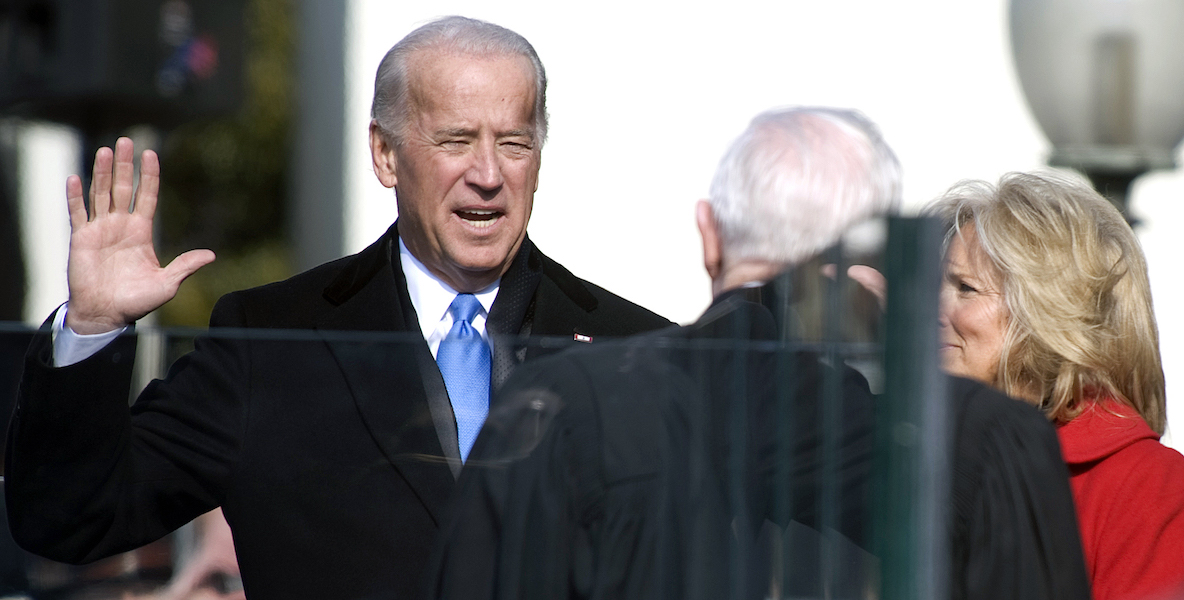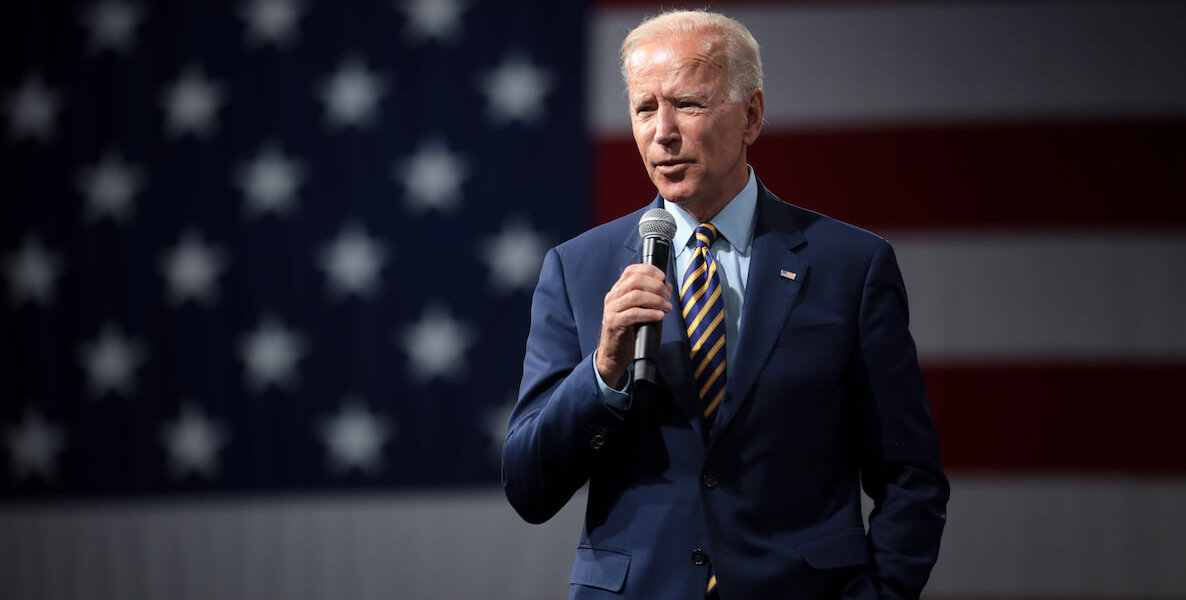In late 2007, I was briefly a prospective candidate for Congress. For three months, I was ushered into rooms full of mostly powerful men and given a few minutes to talk all about me. It was dizzyingly self-centered; I felt like a political version of Willy Loman, always selling, selling, selling…and my product was me. No wonder, I realized, why narcissism runs so rampant in politics.
Once during this time, I met Bill Clinton at a Hillary Clinton fundraiser. I’d gone there naively thinking I could pick his formidable brain on policy. But his eye caught the leggy blonde next to the photographer snapping our photo, and I no longer existed.
“What a great bag!” he said to her, gesticulating toward her designer handbag just like on TV—biting his lip, thumb and forefinger pressed together. “Come on over and get your picture taken with me and that bag.” He turned, boxing me out, ending my big moment. Meantime, he couldn’t stop talking about that freakin’ bag as his arm enveloped the blonde woman and he leaned in close to her.
Biden’s pressing of my flesh was jarring, yes, but not offensive. But if I’d been a woman? If I’d been objectified and treated as somehow other my whole life by men in suits? Well, then I can totally see the Vice President’s “handsiness” making me feel uncomfortable.
On one level, I was amused—how silly I’d been to think I could pick his brain about Tony Blair’s Baby Bonds legislation. But I was also deeply disappointed. The President’s interaction with the blonde woman felt creepy. (Ever since, I’ve heard similar tales of Clinton Disenchantment Syndrome; one friend, over chicken wings, told the president how much he’d been inspired by him. “These are great wings!” Clinton proclaimed in response. And none other than noted feminist Charles Barkley told me that, over a round of golf, he’d become so tired of Clinton’s ogling of anything remotely resembling the female form he’d felt compelled to exclaim: “Man! You s’posed to be the president!”)
But the night on my nascent political campaign trail that I was embraced by Joe Biden felt quite different. There I was, at a fundraiser high atop the Cira Center, ushered by the host over to then-Senator Biden with the briefest of introductions: “Larry’s thinking of running for Congress.”
Vote in 2019 and 2020Do Something
Biden’s eyes widened, he broke into a sparkling smile, and his arms stretched out and around me, surrounding me, pulling me in to him, tight. “You gotta do it, man,” he said. “We need you, man.”
Now I was in his embrace, and he moved his face in even closer, eclipsing the room with those gleaming white teeth, touching his forehead to mine. “Our boys need ya, my man,” he said, referring, I took it, to those serving in our ill-advised war in Iraq. (A war Biden had voted for).
Our interaction lasted all of a minute, but he’d held me tightly throughout it, and I’d been seduced. It wasn’t what he said, but the way he acted: It felt like Joe Biden cared about me. My dad was a lifelong Philadelphian and a Harry Truman Democrat who detested the divisiveness of Frank Rizzo, but on the few occasions he had met the controversial mayor, he’d felt what I’d experienced in Biden’s embrace. Rizzo, a big man, would, like Biden, fill up the space of those before him, be they male or female, shrinking their shared universe down to this intimate moment. “There could be a hundred people in the room,” my dad recalled. “But Rizzo had a way of making you feel like it was just you and him. You were the only thing that mattered to him.”
In politics, it’s called “pressing the flesh,” and Biden has long been as good a practitioner of it as there is. Now, full stop: Biden’s pressing of my flesh was jarring, yes, but not offensive. I was amused, not invaded. But if I’d been a woman? If I’d been objectified and treated as somehow other my whole life by men in suits? Well, then I can totally see the Vice President’s “handsiness” making me feel uncomfortable, and even violated.
Countless hours of news coverage raising the question of whether Biden’s inappropriate hugs disqualifies him from running for president does little more than provide our pussy-grabber in chief a false moral equivalency he and his followers can exploit.
That’s an important acknowledgment, even while we try to put the story of Biden’s touchy-feeliness in perspective. The most thoughtful take on this latest cable news scandal du jour was penned earlier this week by Karen Tumulty of the Washington Post, under the headline: “Joe Biden Needs To Cut It Out. So Does The Mob.” Tumulty rightfully acknowledges that we should all respect women who come forward about unwanted contact—and that men need to respond to those stories with a level of introspection that may be new to some of us.
“But it is also important—and a sign that a social movement is maturing into a social norm—to recognize that not every offense is of equal severity,” Tumulty writes. “Also worth factoring in is whether an alleged perpetrator was acting with malevolence or just cluelessness…Nor does it sound like a power move on Biden’s part. To lose that sense of proportion is to dishonor the victims of the worst kinds of sexual abuse, and to abandon any hope that there can be a path to redemption for those who commit lesser ones and grow to understand the hurt they have caused.”
about possible 2020 candidatesRead More
That seems about right, doesn’t it? Without that sense of proportion, we invite false equivalencies. Not long ago, some of my fellow Jews were upset that, in response to Marc Lamont Hill’s controversial statements about Israel and Palestine, I’d implored his critics to debate Hill, rather than seek to silence him. “If everyone is an anti-Semite, then no one is an anti-Semite,” I wrote.
Similarly, countless hours of news coverage raising the question of whether Biden’s inappropriate hugs disqualifies him from running for president does little more than provide our pussy-grabber in chief a false moral equivalency he and his followers can exploit, as in this viral video that closes with the words “Vote Trump 2020”—and just might reveal who Trump is most afraid of facing in a general election:
Alas, Barack Obama used to call elections our “silly season,” and this presidential campaign has started earlier than most. Keep in mind that political silliness knows no party. Is it mere coincidence, after all, that, just before or right after announcing their candidacies, negative news stories on so many of the Democratic contenders broke? It was as if their Democratic opponents’ opposition research had long been all fired up and ready to launch.
Think of the stories that have clouded the campaign launches so far of the 2020 campaign. There’s been the allegations of sexism inside Bernie Sanders’ last run, Amy Klobuchar’s temper tantrums directed at her staff, Kamala Harris’ alleged doublespeak about her record as a prosecutor, and now Joe Biden’s hugs. Yes, to varying degrees, all of these stories are arguably newsworthy. But have they been told in context and with perspective, as Tumulty asks? And, in its breathless reporting of these scandals, has media shed light on critical issues for us—or co-conspired with self-interested political campaigns in pursuit of more ratings and clicks?
My hope is that Biden responds to this contretemps as Obama did in 2008, when the controversial comments of his pastor compelled him to address the issue of race head-on in a thoughtful speech at the National Constitution Center. He took all the daily noise—the silliness—and turned it into a teachable moment.
If Biden runs, that’s what I’m hoping he brings: A sense of wisdom and proportion. He may have taken a step toward playing that role with his video statement earlier this week: “Social norms are changing,” he said. “I understand that, and I’ve heard what these women are saying. Politics to me has always been about making connections, but I will be more mindful about respecting personal space in the future. That’s my responsibility and I will meet it.”
The question of whether Joe Biden can still be relevant hinges on whether he can demonstrate that he’s still in a state of becoming. That, unlike the man he’d seek to unseat, he can listen, and grow, and resist the urge to react defensively—while so many on the Left are goaded into reacting to Trump like Trump would. That’s the case Jennifer Rubin made for a Biden candidacy in the Washington Post: “When Sen. Elizabeth Warren says she wants big, fundamental change, you can almost hear Trump bellowing ‘Socialism!’” Rubin writes. “More important, you can also imagine the average voter saying, ‘Actually, I’d just like my drug costs to go down’ or ‘Could you do something about my deductibles?’”
Rubin’s argument is that maybe the answer to Trumpism isn’t socialism or “Gotcha” politics so much as reasonableness. And competence. Given that 13 percent of Trump’s voters in 2016 voted for Obama twice, the Democrats just might need a candidate who can speak to disaffected working class voters, black and white.
Is that Biden? Hell if I know. As the reaction to his tactile politicking shows, Uncle Joe’s time may have come and gone. But maybe we should be skeptical of presidents who need on the job training. If ol’ Joe can keep his hands to himself, his voice and experience ought to at least be a welcome addition to the debate.



